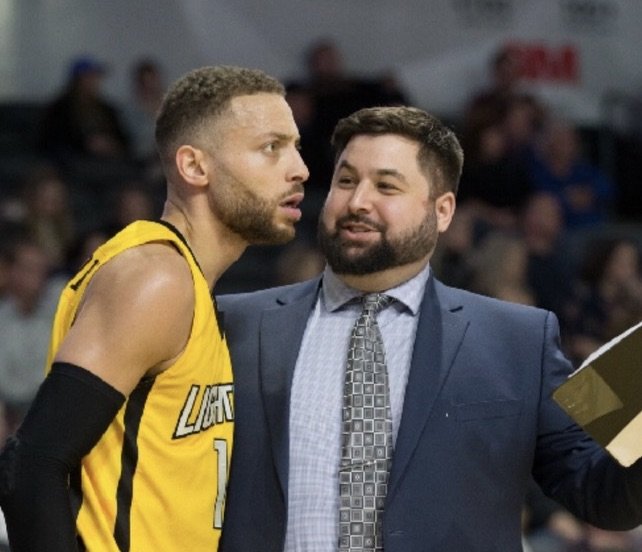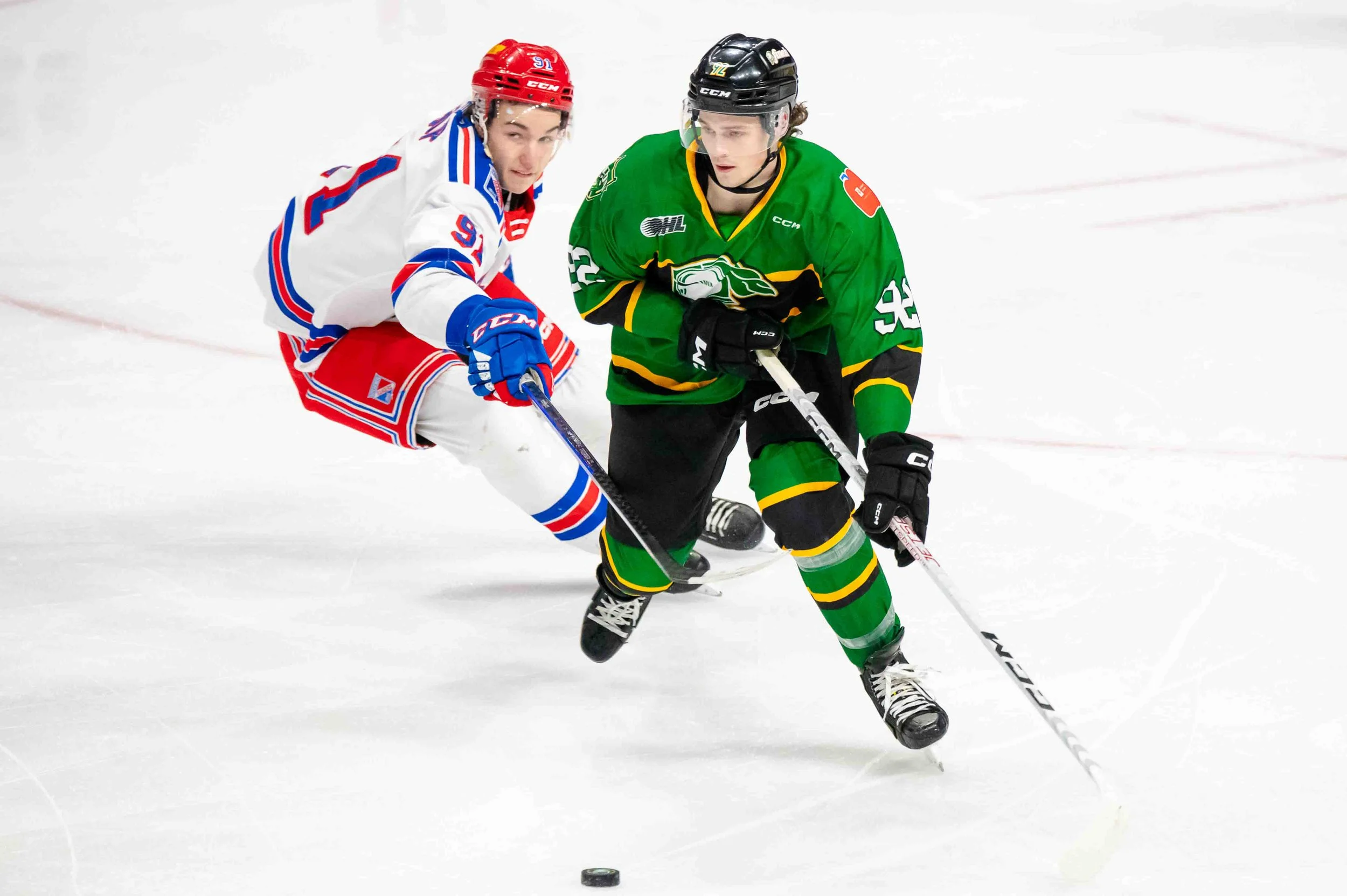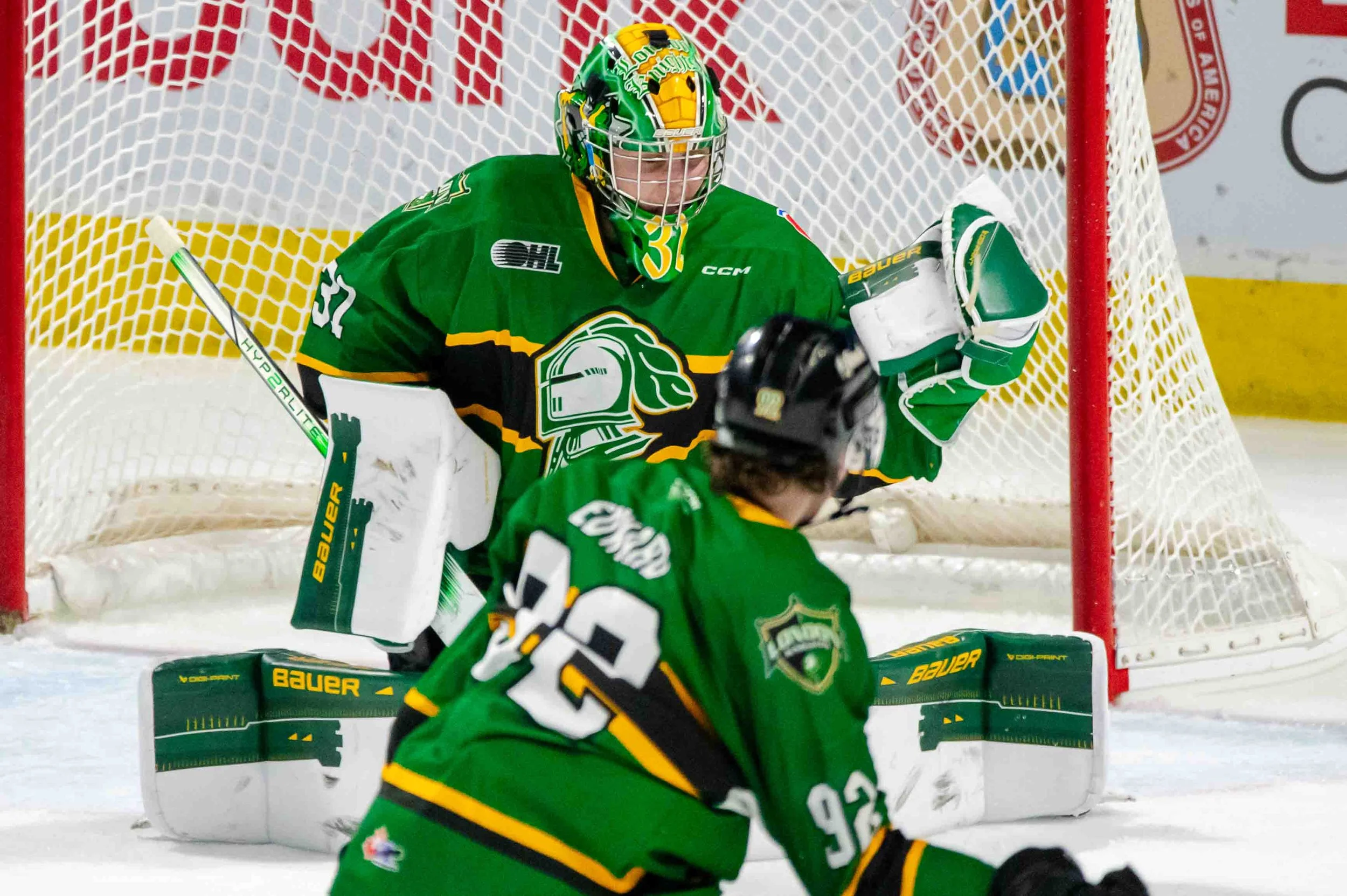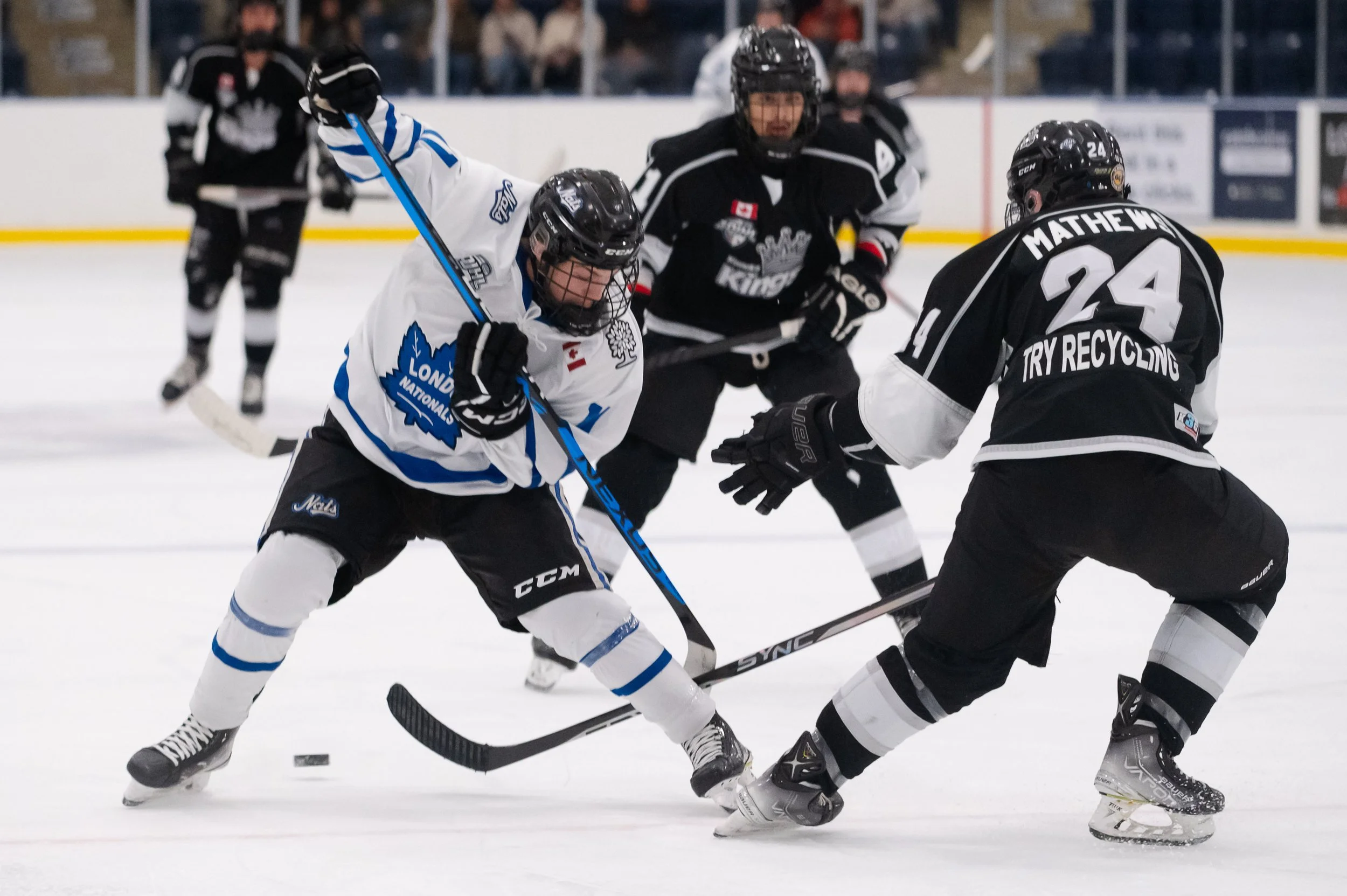Top skills coach Sewell has a talent for helping talent
Behind the scenes, Dave Sewell has been shaping the game’s of many of the best basketball players in London — including NBA draft pick Shaedon Sharpe. But don’t call him a ‘guru.’ He’d prefer you focus on the players.
Sewell works with London-born Shaedon Sharpe, who was drafted 7th overall in the most recent NBA Draft. (Photo courtesy Dave Sewell).
* * *
He’s known by many names – and he hates being called every one of them. Yoda. Buddha. The Guru.
The Guru. Ugh. He especially hates that one.
But that’s exactly what Dave Sewell is – one of the most sought-after player development experts in the game. His influence is apparent on many of the Forest City’s top basketball talents, from local high school, college and university, to NCAA Division I, to professional courts in the city and around the world, to the NBA.
Talk to any player with whom he has worked; they are quick with a nickname – and even quicker to credit what Sewell has done for their game. That seems to be how he prefers it – let the game that his players take to the court speak for his work. He’s a “behind-the-scenes” guy who steers the conversation constantly to his players’ skills rather than his work in elevating them.
“The game has done well for me,” he said.
Isn’t that exactly the kind of thing you would expect a guru to say?
* * *
Sewell grew up in a hoops family, with a father and brother deeply connected to the game. His older brother, Pat Sewell, was considered one of the country’s top talents while playing for Fanshawe College, the University of Toronto, and then the London Lightning.
Dave Sewell, however, graduated from high school and headed right to work for a few years, before eventually enrolling at Fanshawe where he also played hoops for the Falcons. After a series of injuries and a trifecta of surgeries derailed his playing career, he headed to the sidelines where he applied his passion in new ways.
At first, coaching and player development were about staying connected to the game in any way he could. But soon, Sewell realized he had a talent for helping talent, especially veteran players.
“Veteran guys can be set in their ways. But the thing about the older players – the college and professionals, even the top-level high school guys – is that there’s a seriousness about their game that’s on a different level,” he explained. “That’s the level I like being at. If you take the game seriously, if you know what you want, I can work with you.”
To Sewell, success is about more than your game. Everyone walks into the gym with talent. Not everyone is willing to invest. But those are the players he wants.
“I like players who know what they need to do. They know they need to be in the gym. You don’t need to bag them to get them there. You know they are going to show up and be ready.”
For younger players, hoops isn’t always the only thing on their minds. School. Other sports. Extracurricular activities, of all sorts. It is a big ask of a young athlete to focus on one thing.
“I get that. I don’t blame the kids,” Sewell said. “But if I’m going to invest in a player, I want them to be invested as well.”
The game, along with the training for it, has changed. At the elite level (or even the ‘hopeful elite’ level), not everyone needs a trainer at every moment, but there will come a time when a shot is broken, a mindset misguided, or maybe a time when a player needs a push to be great.
“As much as you can help young kids out, they don’t need it as much. That’s a weird thing to say, but young players need to be building the basics. Working on them every day. The advanced stuff comes later.”
It might seem like greater pressure comes with working with older players. This isn’t their pastime, after all; it’s their career, their livelihood. But that’s not necessarily the case, Sewell said. At that level, it’s not about learning the game anymore. It’s about perfecting it – and themselves.
“Coaching involves a little bit of everything. Whatever a player needs, you gotta be it for them. Might that mean coach and counselor? Yes,” he continued.
But taking good to great, that’s what makes the job fun.
Sewell with former London Lightning star Garrett Williamson. (Photo courtesy Dave Sewell).
As a freelance player development pro, Sewell has worked in coaching or training capacities with the area’s top squads, including H.B. Beal Secondary School, Fanshawe, Western, and the Lightning. He’s helped some of the best players ever to call London home, including former Lightning stars like Garett Williamson and Royce White, as well as all-time leading Mustang scorer star Omar Shiddo, and international standout Dejan Kravic.
Sewell has trouble containing his excitement when talking about three recent pupils – Shaedon Sharpe, Marko Maletic, and Kur Jongkuch. Maletic (Long Island University) and Jongkuch (Temple University) just started playing Division I basketball this season. Sharpe, well, he doesn’t need much introduction to area hoops fans, as he’s the most celebrated star ever to come out of London.
In 2018, Sewell was on the Lightning coaching staff that won the NBL Canada title under former head coach Keith Vassell. Looking to move on to a new challenge, Sewell was approached by Beal High School head coach Tony Marcotullio about working with one of his young players.
“I didn’t really want to go down, didn’t really want to work at the high school level,” Sewell explained. “At that point, I was working with the older guys and enjoying that challenge.”
But Marcotullio was insistent.
The kid was Sharpe.
“The first time I saw him it was like ‘holy shit.’ You could tell from the get-go that this kid had a chance. I felt I could help him out.”
Sharpe’s journey has been well-documented – from leading the Beal Raiders to OFSSAA in Grade 9, to prep academy ball in Kansas and Arizona, to AAU play in Canada, to the University of Kentucky, and then to becoming the 7th overall pick in the NBA Draft by the Portland Trail Blazers.
All this and he’s only 19 years old.
Perhaps less noted, however, has been the fact that Sewell was at his side the whole way.
“I went through the ringer with him,” Sewell said. They worked together in high school seven days a week, then at Kentucky, then in the spring and summer runup to the draft. A pro day in Chicago. The draft in New York. Summer league in Las Vegas.
“I was everywhere he was,” Sewell continued. “I have learned a lot during this. Maybe most of all that I don’t mind living out of a backpack. I made a lot of connections. Met a lot of coaches and scouts. Just met a lot of people and talked a lot of basketball. Seeing that process up close has been a great experience.”
Sewell takes pride in the fact his relationships with his players are ongoing. They continue to grow and develop together. And why not? He often knows them better, from a basketball perspective, than they know themselves.
As the game’s popularity continues to grow across the country, and the level of skill continues to increase in London, Sewell’s impact will continue to be felt for a long time. That’s not a statement he would admit to agreeing with, by the way. He prefers to steer the conversation to his players.
“There’s so much talent in this city,” he said. “I have been lucky to work with some great players.”
Exactly the kind of thing you would expect a guru to say.














The London Knights (1) and Saginaw Spirit (2) are the two teams still standing in the West. They’ll play for a chance to advance to the OHL Final. What should we expect? Our hockey columnist, Jake Jeffrey, breaks it down …